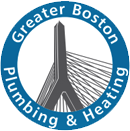We will always need plumbing, or more specifically, working plumbing, but unfortunately people will always do stupid things that causes plumbing problems and stops it from working. Here are the top 10 stupid things that people do to ruin their plumbing.
1: Leaving hoses connected during winter.
This is a classic plumbing error that one must assume is caused most often by extreme laziness. Hoses can cause damage when left out all year: they can lead to freezing of the outdoor faucet or its water supply pipe. It’s terrible for your hose, too.
2: Using vent pipes for anything other than venting.
There are reports of homeowners running things like TV cables down the plumbing vent pipes that come up through their roofs. Seems like a tempting solution to getting into the house, but vent pipes aren’t just there for their bad looks. They not only provide air to drains inside the house, to prevent a suction effect that inhibits drainage; they also get rid of sewer gases that come up from the city’s sewer main. If you cut a hole in your vent inside the house to run a cable through, you’re tapping into an endless supply of your neighborhood’s sewer air.
3. Using too much drain cleaner.
When used judiciously and as directed on the right kind of clog, drain cleaners can be effective and relatively safe for drains. When used with abandon, they can corrode some drain materials, and they can actually make clogs worse. It’s also not very nice for the plumber who eventually comes out to clear that clog.
4. Pouring chemicals (and other bad stuff) into a septic system.
If you’re used to living with a “private” sewage system, you probably know how to take care of it. But if you just bought a house with septic you might not think twice about using chemicals like drain cleaner, chlorine bleach, paint and even anti-bacterial soaps. These chemicals kill the essential waste-eating bacteria in the septic tank, and you can guess the result.
5: Screwing, nailing or cutting into a wall with hidden plumbing pipes.
This kind of speaks for itself.
6: Joining two different metals in piping.
DIY plumbers beware: When dissimilar metals, such as copper and steel, are touching, a process called galvanic action leads to corrosion. Corrosion leads to leaking pipes. Such joints must be made with a dielectric union or other approved fitting.
7: Pouring grease down the kitchen drain.
If you’re in the habit of pouring bacon grease down the kitchen-sink drain, you might as well try to stuff the whole pig down there. Grease is one of the best things for clogging drains.
8: Putting everything else down the kitchen drain.
A garbage disposal does very little to stop the following from clogging your drain: flour, rice, potato peels (and some other veggie peels) and many fibrous foods such as asparagus and chard.
9: Removing a sink drain.
This is not a common stupid mistake, but it warrants mention here. Some very well-meaning folks who want to green their everyday lives have been known to remove the P-trap and other drain parts underneath their bathroom sink so that the wastewater could be collected in a bucket and used to water plants outdoors. While the use of gray water is the jurisdiction of the local health department, the issue in this humble missive is the 1 1/2-INCH HOLE PUMPING SEWER GAS INTO THE BATHROOM. You have to plug that drain pipe.
10: Using the toilet as a trash can.
It’s as though, at the back of our minds, each of us believes that if we can just get it to flush away, it will be magically out of our lives forever. Unfortunately, the toilet leads to a 3-inch drain pipe that leads into another drain pipe, which is THE drain pipe to your entire house. In other words, flushing one improper item down the toilet ultimately can stop up everything in the house. The bottom line is, if it isn’t toilet paper or waste, don’t flush it.
For plumbing help, contact Greater Boston Plumbing and Heating.
Networx.com
Almost every homeowner in Boston dreads the winter weather, and fears the possibility of plumbing problems due to the fast drop in temperature. It is hard to say what the cold season will bring. So apart from tuning up the heating system, you also need a professional plumber to check out your plumbing system and fix any issues.



